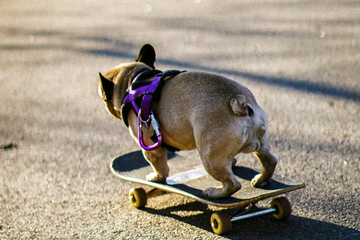Dog blankets: How to train, and what is the best dog blanket?
Dog blankets are vitally important for any owner who wants to keep their pups warm in winter and off their bed all-year-round. How can you blanket train a dog, what blanket is best, and why is it so important?
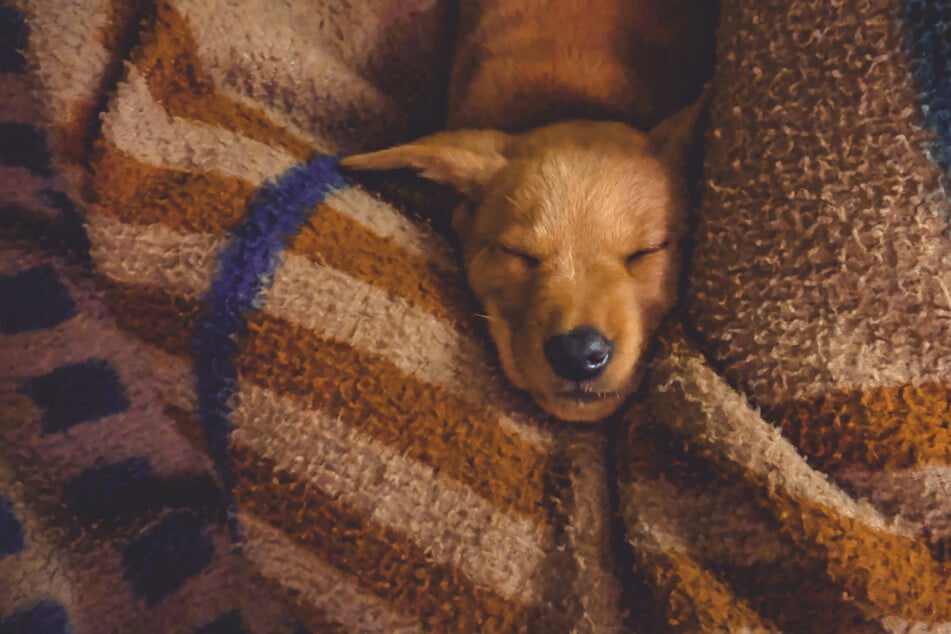
With a little bit of patience and not too much skill, you'll quickly be able to train your dog to stay on its blanket and avoid your crispy clean bedsheets.
Without the right blanket, though, no amount of training will be able to provide your doggo with the comfort and happiness that it so rightly deserves.
Luckily for you, that's where we come in!
In this dog guide, TAG24 will take a look at dog blankets.
Why should a dog get a blanket, and what are the best blankets for dogs?
Let's also dive into dog blanket training – how can you keep your dog off the bed?
Let's find out!
Dog blankets: What and why?
There are many reasons that can explain why a dog may need a blanket. From protection in the cold harsh winter to a simple snuggle next to the couch while its owner watches television, the reasons pile up. Ultimately, though, it all comes down to comfort – a blanket will provide your dog with warmth, a sense of safety, and happiness.
When thinking about dog blankets, though, it's important to ascertain what your specific goal is. A general-use blanket will be different from one that is meant for taking on walks in the snow, which will then be different from a sleeping blanket. Each will feature different characteristics, but all are blankets – so which one should you choose?
It's worth taking a look at a few reasons why a dog might need a blanket and explaining what a blanket needs to be like to fulfill the purpose it is being given.
These are the most important dog blankets out there:
- Winter blanket: This is a more heavy-duty blanket, designed to keep your dog warm outside during cold winter months. It needs to be water-resistant and should be paired with a towel, just in case your dog gets wet. You also need to make sure that it is extremely warm, but also light-weight so you can realistically carry it with you.
- Bed blanket: If your dog is sleeping, it may want a blanket to bundle itself into. Such a blanket should be thick, warm, and easy to wash, as your dog will spend a lot of time in contact with it.
- Snuggle blanket: When your dog is not particularly cold but simply wants to snuggle up on the couch or in bed with you, this is a lightweight blanket that covers a piece of furniture and protects it from your doggo.
- Pitter-patter blanket: In rooms where the floor is tiled or where you want to protect the floorboards, it is not a bad idea to put down towels, carpet, or blankets whenever your doggo is let into the room.
Don't worry if you haven't put this much thought into the blankets you have bought your dog! As time goes on, you will form a better idea of what your dog needs.
Best dog blankets
Different dog blankets serve different purposes, as we described above, but there are certain characteristics that every dog blanket needs to have for it to be safe and suitable for use by your dog. If you don't get a blanket that fits these standards, you may end up with one that is dangerous or just simply doesn't fulfill its intended purpose.
Here are the key characteristics of a good dog blanket:
- Lightweight: You don't want your dog's blanket to be too heavy or burdensome.
- Size: Your dog's blanket needs to fit your dog, both in that it should be big enough and in that it shouldn't be so big that it poses a tripping hazard or becomes hard to handle.
- Standard: Just use standard blankets and never self-heating or weighted ones, as they pose their own set of risks.
- Good materials: You must use high-quality materials that have been synthetically made and treated – we recommend microfiber or fleece. A lot of biological fabrics like wool can cause allergic reactions. If unsure, consult your vet.
- Washing: Be careful when washing the blanket that you always use a safe detergent. Additionally, make sure to wash the blanket before its first use.
Hot tip: Veterinarians can help you choose the items you buy your dog. If you are unsure, ask your vet for some help. In addition, your local pet store should also have some helpful shop assistants that may give some advice.
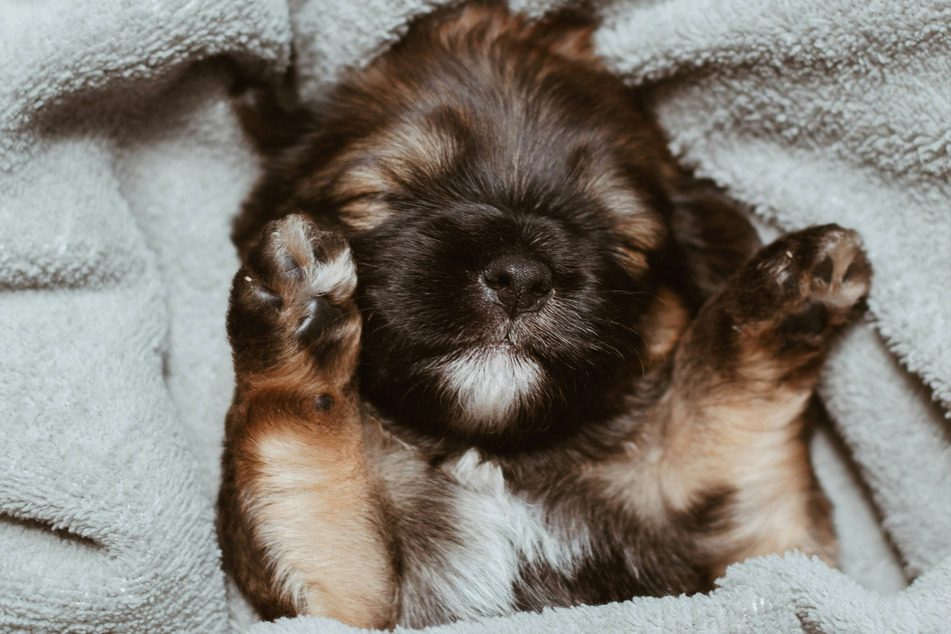
Dog blanket for couch
A couch blanket is important if you want to protect your furniture from your four-pawed friend. If you get a couch blanket then you will be able to keep your dog happy and contented, snuggled up with you while you watch television, without having to worry about your dog stinking up or scratching your furniture.
The blanket itself should be warm, soft, and can be relatively heavy-duty to prevent your dog's claws from getting through and scratching the couch. It doesn't need to be particularly warm as it's inside and not for sleeping, and it also doesn't necessarily need to be lightweight and maneuverable.
Choosing the right couch blanket isn't such a big deal and most will do fine for this purpose, but try to always use the same one to make things consistent.
Dog blanket for bed
A dog's bed blanket is important because it serves to protect your dog from the cold and creates an atmosphere that will induce sleep.
You want it to be very soft, quite heavy, and warm as well. It needs to be kept the same and left in your dog's sleeping spot to make sure that things are kept consistent so you don't need to keep re-training your darling doggo.
Why does my dog pee on his blanket?
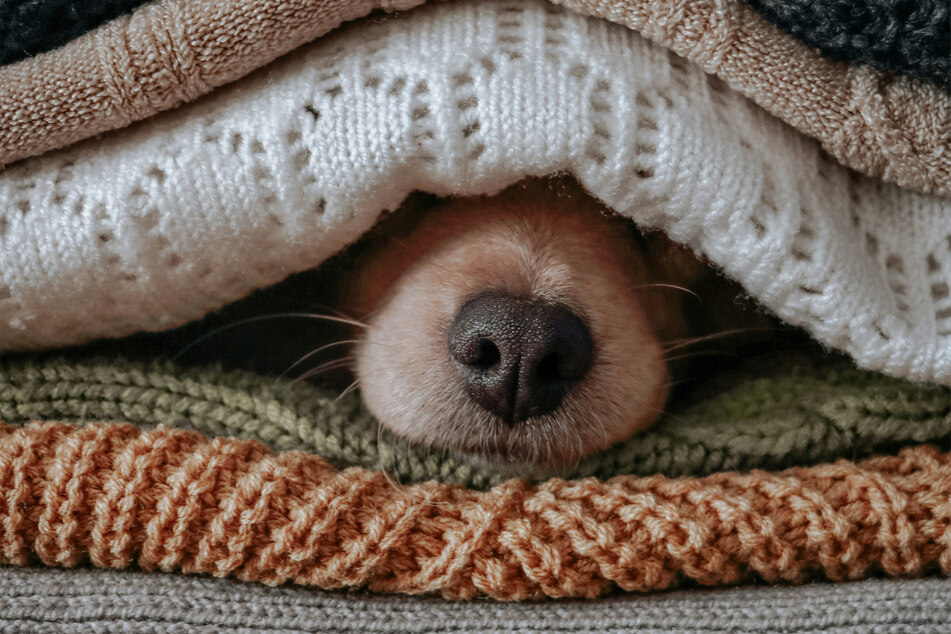
If your dog is consistently wetting the bed and peeing on its blankets, something could be seriously wrong. It is worth checking with the vet if this is the case and making sure that everything is alright. On top of that, your vet will be able to give you advice on how to fix the problem and stop the behavior.
Here's why your dog might pee on its blanket:
- It may be marking its territory
- Mental health problems
- Cognitive decline
- Medical causes:
- Arthritis
- Kidney issues
- Urinary tract infect
- Incontinence
- Diabetes
- Anxiety and stress
- Lack of toilet training
As with anything medical, if your dog starts peeing all over the place or just on its blanket, you need to take it to the vet as soon as possible.
How to get dog pee smell out of blankets
Using a high-quality detergent is your best bet when washing blankets that smell like dog pee. Of course, there are a variety of tips and tricks that can help get any odor out of anything. In the end, however, it mostly comes down to the washing machine and detergent that you use – if you skimp, you stink!
Here are a few tips for getting dog pee out of blankets:
- Multiple washes: Using a high-quality detergent, wash the blanket first on a cold cycle and then on an increasingly hot cycle until the smell is well and truly gone.
- Vinegar: Make a vinegar solution, one part water to one part vinegar, and soak the blanket in it. Follow this up with a proper wash.
- Cold cycle: Add a few cups of distilled (white) vinegar to your washing machine and run it through a cold cycle. Follow this up with a thorough rinse and then a standard wash with detergent.
- Baking soda: Put warm water in the sink and add a few spoonfuls of baking soda, enough to evenly disperse through the water. Soak for 24 hours and then rinse it all out. Put the blanket through another wash cycle.
You can clean your dog's blanket and remove any smells without the need for nasty chemicals or expensive items. Just a few quick home remedies will do!
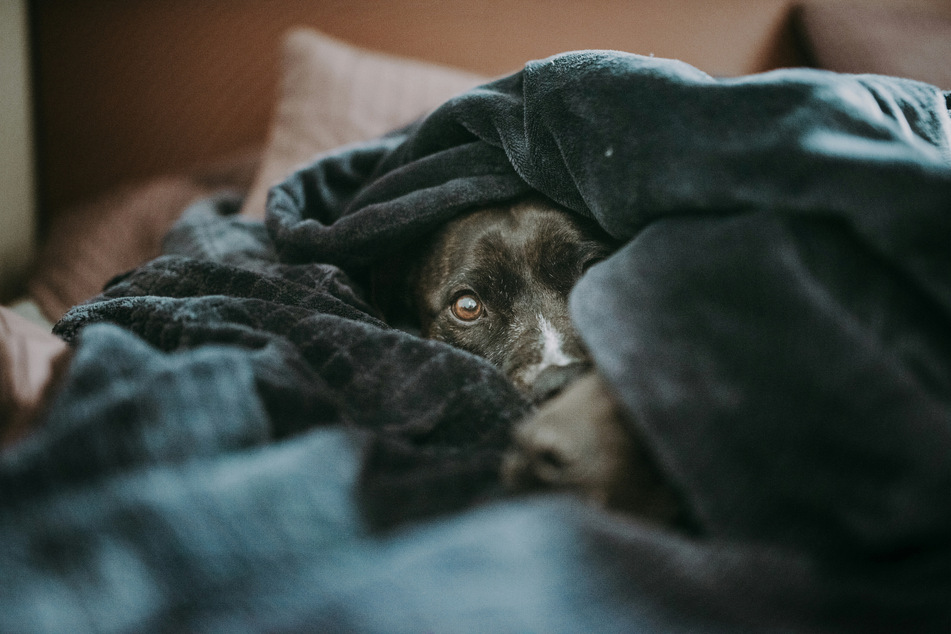
Dog blanket training
Here's how to blanket train your dog
Step 1: Place the blanket on the floor and draw your pet's attention to it.
Step 2: Throw a treat onto the blanket and let your dog eat it right away. Repeat this a few times.
Step 3: Instead of throwing the treat, point to the blanket and wait for your dog to approach it. If your dog touches the blanket, a reward will follow. Repeat this step a few times.
Step 4: Now you can incorporate verbal commands, saying things like "blanket" and "sit" to associate words with the blanket itself. Your goal is for your dog to approach the blanket whenever you say the word you have chosen as most appropriate.
Step 5: Once your loyal companion has linked the verbal command with the task, it's time to keep practicing. The more often you practice the command, the better it will work.
Once your dog has learned to go over to the blanket and lie down whenever you tell it to, things will become a lot easier in your household. Trust us, it's worth the effort and snacks.
Why does my dog lick my blanket?
Anxiety and boredom are but two of many reasons why a dog may lick and chew on a blanket. Other reasons include compulsive disorders, a need for attention, a variety of medical or dental causes, teething, or just simple habit. It's important to recognize that there are many worrying explanations as well as many harmless reasons why this might be happening.
If you are concerned because your dog has started chewing on its blanket and behaving differently, it's time to go to the vet. Every now and again it is normal for your dog to chew on things, but it's best to recognize when things are not so normal and take medical action accordingly.
Cover photo: Unsplash/Kartabya Aryal


